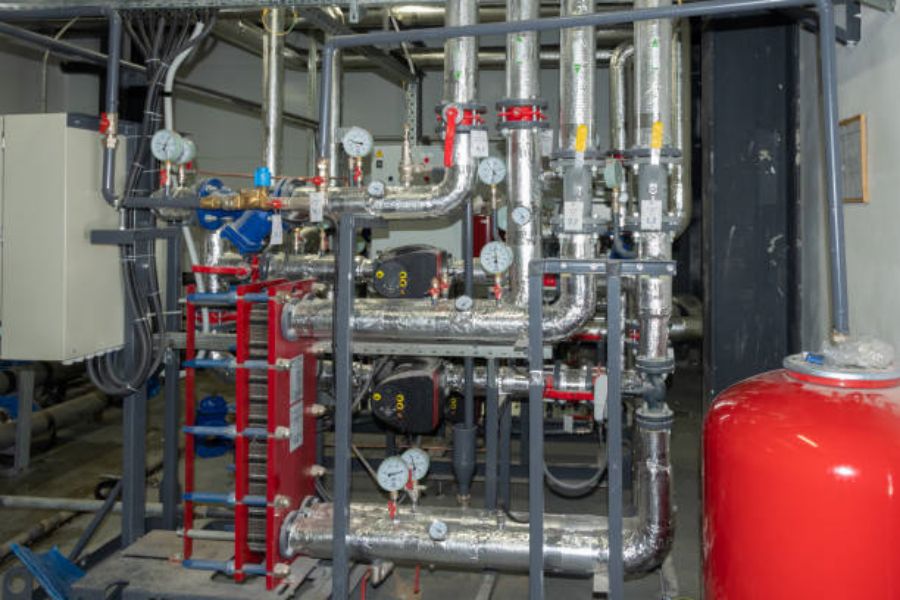The Importance of condensing temperature in HVAC Systems
When it comes to maintaining optimal performance and efficiency in HVAC systems, one crucial factor that needs to be considered is the condensing temperature. This temperature plays a significant role in the overall operation of the system and affects various aspects, including energy consumption, system capacity, and equipment lifespan. In this article, we will delve into the different aspects of condensing temperature and its impact on HVAC systems.
What is Condensing Temperature?
Before we delve into the details, let's first understand what condensing temperature actually means. In an HVAC system, the condensing temperature refers to the temperature at which the refrigerant transitions from a gaseous state to a liquid state. It occurs in the condenser, where heat exchange takes place between the refrigerant and the surrounding air or water. The condensing temperature is typically determined by factors such as the outdoor temperature, system design, and the type of refrigerant used.
The Relationship between Condensing Temperature and Energy Efficiency
The condensing temperature has a direct impact on the energy efficiency of an HVAC system. As the temperature increases, the pressure and temperature difference between the refrigerant and the ambient air decrease. This results in a reduced heat transfer rate, leading to lower energy efficiency. On the other hand, maintaining a lower condensing temperature allows for better heat transfer and improved energy efficiency. Therefore, it is essential to ensure that the condensing temperature is properly controlled to achieve optimal energy efficiency in HVAC systems.
Effects of Condensing Temperature on System Capacity
The condensing temperature also affects the overall capacity of an HVAC system. Higher condensing temperatures can lead to a decrease in the system's cooling capacity, as it reduces the temperature difference between the refrigerant and the cooling medium. This can result in reduced cooling performance and longer cooling cycles. Conversely, lower condensing temperatures can enhance the system's capacity by maintaining a higher temperature difference, allowing for more efficient cooling and shorter cycles.
Impact of Condensing Temperature on Equipment Lifespan
Another critical aspect influenced by the condensing temperature is the lifespan of HVAC equipment. When the condensing temperature is too high, it puts additional strain on the compressor and other components of the system, potentially leading to premature wear and tear. Conversely, a lower condensing temperature reduces the workload on the equipment, extending its lifespan. By carefully maintaining the condensing temperature within the recommended range, HVAC systems can enjoy longer operational life and minimize the need for frequent repairs or replacements.
The Role of Condensing Temperature in Refrigerant Selection
The condensing temperature also plays a significant role in determining the suitable refrigerant for an HVAC system. Different refrigerants have varying boiling points and pressure-temperature relationships. By considering the condensing temperature requirements of the system, HVAC professionals can select the appropriate refrigerant that matches the desired performance and efficiency goals. In some cases, systems may require modifications or upgrades to accommodate different refrigerants with specific condensing temperature ranges.
Optimizing Condensing Temperature for Energy Savings
To achieve maximum energy savings, it is crucial to optimize the condensing temperature of an HVAC system. This can be done through various methods, such as improving heat exchange efficiency, enhancing insulation, and implementing advanced control strategies. Regular maintenance and cleaning of the condenser coils also contribute to maintaining the desired condensing temperature. By implementing these measures, HVAC systems can operate at their peak efficiency and reduce energy consumption, resulting in significant cost savings.
Considerations for Condensing Temperature in Different Climates
The condensing temperature requirements may vary depending on the climate conditions in which the HVAC system operates. In hotter climates, where outdoor temperatures are consistently high, maintaining a lower condensing temperature becomes even more critical. This helps to offset the higher heat load and ensures efficient cooling. In colder climates, on the other hand, there may be less emphasis on achieving extremely low condensing temperatures, as the system's performance is primarily focused on heating rather than cooling.
The Impact of Condensing Temperature on System Noise
The condensing temperature also has an indirect impact on the noise level produced by an HVAC system. Higher condensing temperatures can lead to increased compressor noise, as it operates under higher pressure conditions. On the contrary, maintaining a lower condensing temperature can help reduce noise levels, providing a more comfortable environment for occupants. Therefore, controlling the condensing temperature not only affects the system's performance and efficiency but also contributes to noise control in HVAC systems.
Regulatory Standards and Guidelines for Condensing Temperature
Various regulatory bodies and industry organizations have established standards and guidelines regarding the condensing temperature requirements in HVAC systems. These standards aim to ensure optimal energy efficiency, environmental sustainability, and system performance. HVAC professionals and system designers must adhere to these guidelines to meet the necessary compliance requirements and provide customers with reliable and efficient HVAC solutions.
The Future of Condensing Temperature Control
With advancements in technology and increasing demand for energy-efficient solutions, the control and optimization of condensing temperature in HVAC systems are expected to evolve. Intelligent control systems, machine learning algorithms, and advanced sensors can help monitor and adjust the condensing temperature dynamically based on real-time conditions. This allows for more precise control, improved energy efficiency, and enhanced performance, making HVAC systems even more sustainable and cost-effective in the future.
